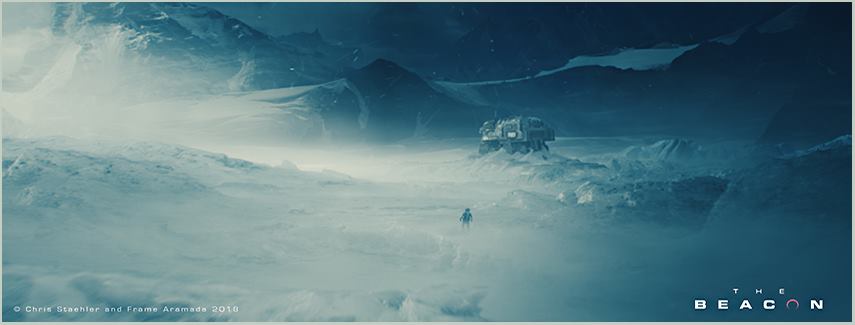 Art Imitating Life, Captured in ArtNovember 2, 2018
National Science Foundation Antarctica stands in for some of the most remote places in the solar system when it comes to some of the research supported by the U.S. Antarctic Program. Mars rover designs have been tested in the McMurdo Dry Valleys. The Valleys themselves are seen as the closest analog to the surface of Mars on Earth. And lakes under the ice and glaciers are home to previously unknown ecosystems that may be very similar to those found on Europa, a moon of Jupiter. But in a turn-about, Antarctic icescapes captured by an NSF funded artist form the basis for some settings in science fiction film set off-world. Helen Glazer was a Maryland-based participant in NSF’s Antarctic Artists and Writers Program in 2015. Part of her project was to create three-dimensional models from scans of images of Antarctic glaciers and icebergs. Her work was subsequently selected in a statewide competition to be displayed at Baltimore / Washington Thurgood Marshall International Airport and also appeared in a solo show called “Walking in Antarctica” at Baltimore’s Goucher College: http://helenglazer.com/project/walking-in-antarctica. These scans have now been used as a basis to add realism to the scenes set on a frozen planet in a short science fiction film, The Beacon Movie, which won Best Picture and Best Sci-fi honors in the September 2018 Los Angeles Film Awards competition.
|



For USAP Participants |
For The Public |
For Researchers and EducatorsContact UsU.S. National Science FoundationOffice of Polar Programs Geosciences Directorate 2415 Eisenhower Avenue, Suite W7100 Alexandria, VA 22314 Sign up for the NSF Office of Polar Programs newsletter and events. Feedback Form |

